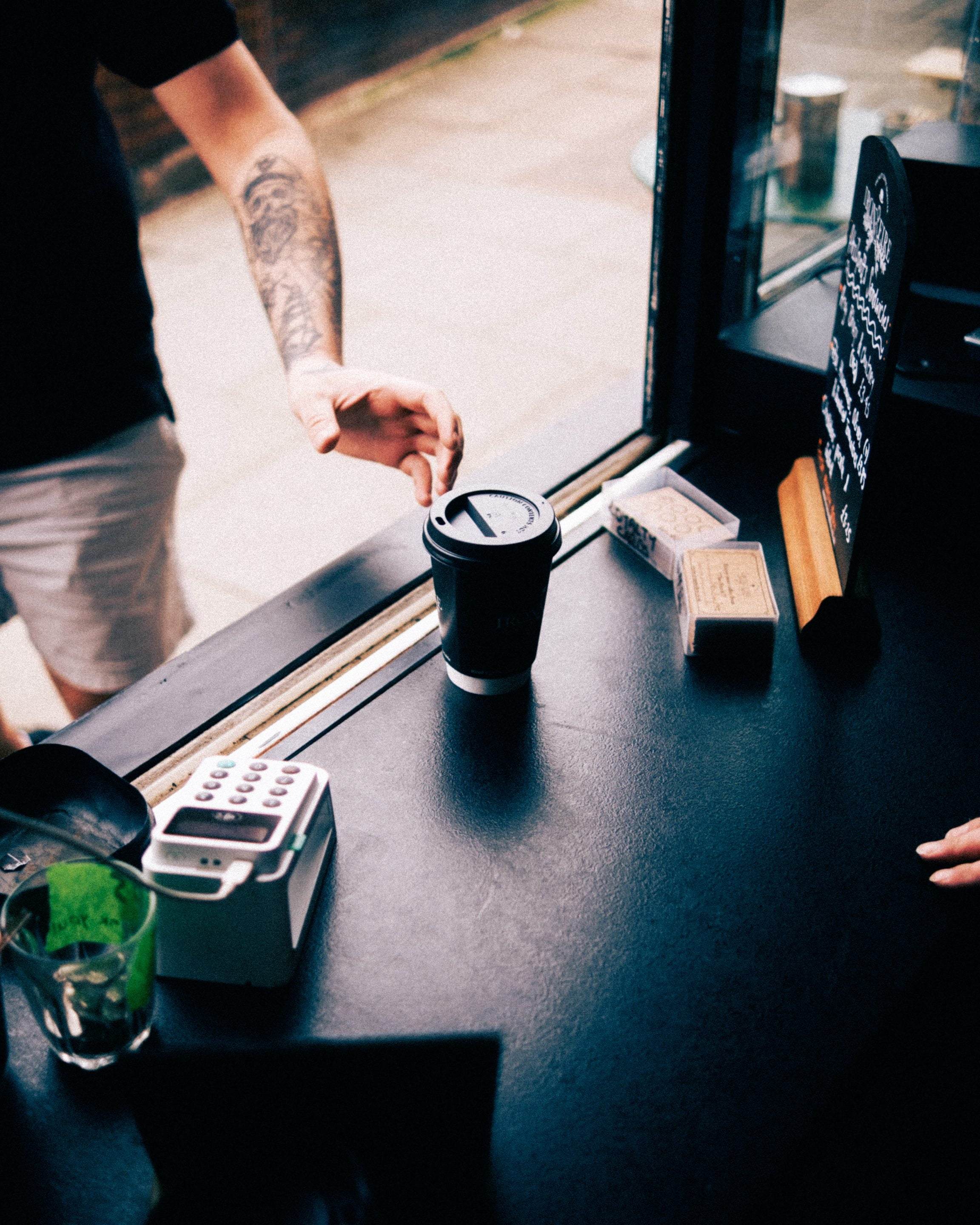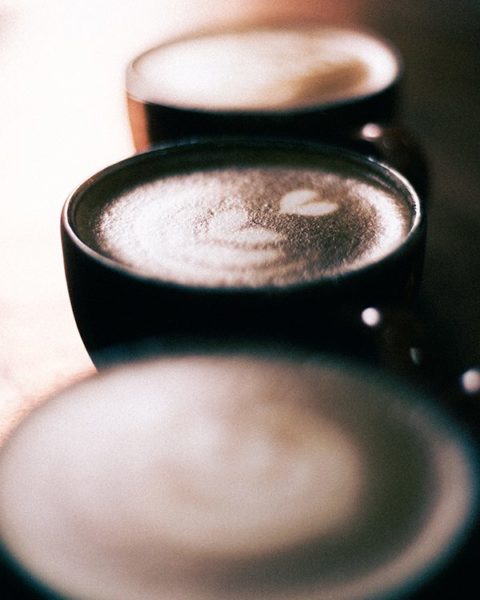Thinking of launching your own café? You’re in for an exciting journey, and we’ve got you covered with the ins and outs of kitting out a successful coffee shop. This guide will unravel the essentials of coffee equipment, ensuring you’re ready to brew that flawless cup of coffee.
Starting a coffee shop is thrilling but demands thoughtful planning. From picking the perfect espresso machine to choosing top-tier grinders and brewing gadgets, every tool is crucial for quality and efficiency. Consider your budget, space, and what your customers crave.
Whether you’re serving quick espressos or a range of specialty drinks, having the right equipment lays the groundwork for your success.
Imagine the aroma of freshly ground beans greeting your customers—it’s an experience they’ll love. Plus, think green by incorporating sustainable practices, like offering plant-based options. This not only caters to diverse tastes but also aligns with an eco-friendly ethos.
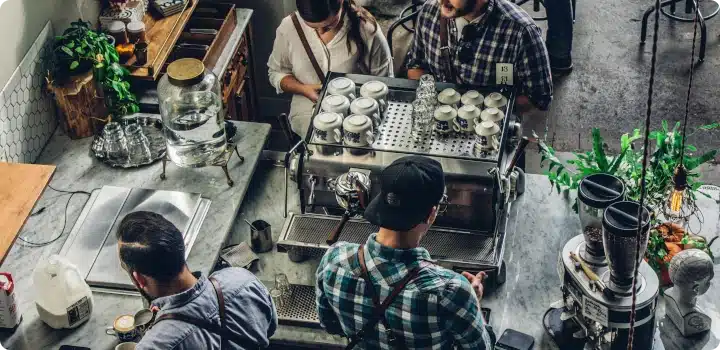
Introduction to Coffee Shop Equipment
Importance of Quality Equipment
Investing in top-notch coffee shop equipment isn’t just about style; it’s a smart move that elevates taste, boosts efficiency, and amps up customer satisfaction. Quality gear ensures every cup hits the mark, crucial for building a loyal fan base.
Plus, high-grade coffee machines are more durable, cutting down on those annoying hiccups and repairs. With consistent performance, your crew can focus on delivering stellar service instead of wrestling with tech glitches. And let’s not forget, many top-quality machines are energy-efficient, which means long-term savings.
In a nutshell, the right equipment is the backbone of your coffee biz, laying the groundwork for success in the bustling coffee scene.
Different Types of Coffee Shop Equipment
When outfitting a coffee shop, the variety of equipment required can be extensive. Central to any coffee shop is the espresso machine, which is the heart of coffee production. Alongside this, coffee grinders are essential for freshly ground beans, which significantly impact the flavour of the coffee.
Other important pieces include coffee brewers for different brewing methods, such as drip or pour-over. Milk frothers and steamers are necessary for a range of espresso-based drinks. Beyond the coffee-centric items, other equipment such as refrigeration units for storing milk and cream, blenders for iced and mixed drinks, and ovens or toasters for food items are also crucial.
Additionally, don’t forget about the supporting cast: water filtration systems, dishwashers, and sinks ensure that your operation runs smoothly and maintains hygiene standards.
Coffee Brewing Equipment
Commercial Coffee Machines
Espresso machines are the heart and soul of any coffee shop, forming the basis for countless coffee beverages. Commercial coffee machines come in various types, ranging from manual to automatic, each offering unique features and benefits tailored to different skill levels and customer needs.
- Manual Coffee Machines allow for greater control over extraction, pressure, and water temperature, but they require skill and experience to master. These machines are often favoured by coffee purists and artisans who enjoy the art of crafting the perfect espresso shot.
- Semi-Automatic Coffee Machines provide a balance between control and convenience, offering users the ability to manage certain aspects of the brewing process while automating others. This makes them a popular choice for small coffee shops that value both quality and efficiency.
- Automatic Coffee Machines simplify the process by automating most of the brewing steps, making them ideal for high-volume shops where speed and consistency are crucial. Their ease of use allows baristas to focus on customer service and other tasks.
Coffee Brewers
Aside from commercial coffee machines, coffee brewers are essential for providing a variety of coffee-based drinks. These range from single-cup brewers, which are great for customisation and individual orders, to large batch brewers that can serve multiple customers quickly during peak times.
When selecting a coffee brewer, think about the brewing method you plan to offer, such as drip, French press, or pour-over. Each method requires different types of brewers and can affect the taste and texture of the coffee. It’s also wise to consider the coffee beans, brew time, capacity, and ease of use, particularly during busy periods.
A reliable coffee brewer should maintain the correct water temperature and distribute water evenly over the coffee grounds for optimal extraction. Regular maintenance is essential to prevent mineral build-up and ensure your coffee brewer continues to operate efficiently.
Drip Coffee Makers
Perfect for serving multiple customers quickly and efficiently, drip coffee makers are essential equipment for any coffee shop aiming to cater to a larger crowd. These machines come in varying sizes and functionalities, ranging from simple home models to large commercial systems capable of brewing multiple pots simultaneously. Their ability to produce consistent coffee in large batches makes them indispensable for busy mornings.
French Presses and Pour-Over Setups
These traditional brewing methods are cherished for their ability to produce rich, flavourful coffee that highlights the coffee beans’ natural characteristics. French presses and pour-over setups require minimal equipment and space, yet they offer a high-quality brew, making them perfect for specialty offerings and coffee tastings.
Enthusiasts appreciate the hands-on nature of these methods, allowing for customisation in brew time, grind size, and water temperature to suit individual preferences.
Coffee Grinders
Coffee grinders are another indispensable piece of coffee shop equipment alongside a coffee machine, playing a pivotal role in the flavour and quality of the brew. The choice between a blade grinder and a burr grinder is important; burr grinders are generally preferred in a commercial setting for their consistency and precision.
They work by crushing the beans between two surfaces and can be adjusted to produce a range of grind sizes suitable for different brewing methods. When choosing a grinder, consider the volume of coffee you’ll be serving and whether you need a grinder with a doser, which dispenses a pre-measured amount of coffee grounds, or one that doses by volume or time.
Blade vs Burr Grinders
A good grinder is crucial for extracting the best flavours from your beans, as the grind size and consistency directly impact the taste and aroma of your coffee.
- Blade Grinders are often less expensive and simple to use. However, they can produce uneven grinds, leading to an inconsistent extraction process. This inconsistency may result in a mixture of under-extracted and over-extracted coffee, affecting the overall flavour.
- Burr Grinders, on the other hand, are designed to provide a consistent grind size, which is essential for achieving a balanced and high-quality coffee. These grinders use two revolving abrasive surfaces to crush the beans, ensuring uniformity and better control over the grind size.
A good grinder can make all the difference and should also maintain a cool temperature to avoid heating the beans during grinding, which can adversely affect the taste. Regular cleaning and maintenance of the grinder will ensure the best-tasting coffee and extend the life of your equipment.
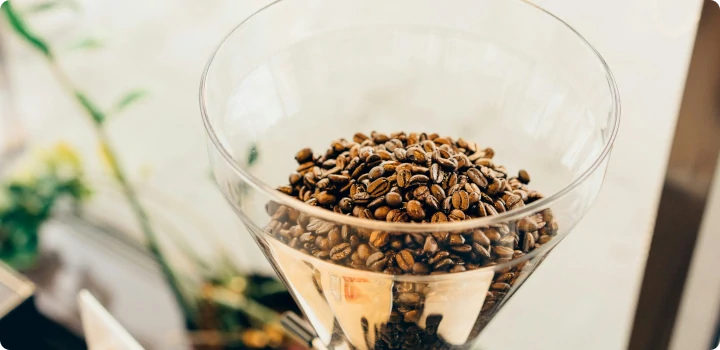
Water Quality and Filtration
Water is the star player in your coffee cup, so quality matters! Poor water can dull the taste and aroma, turning your perfect brew into a flat experience.
That’s why investing in a good filtration system is a game-changer. It helps keep the unwanted elements like chlorine and heavy metals at bay while keeping the minerals that give your coffee its unique character.
Plus, regular maintenance of your filtration equipment means you’ll enjoy consistently great coffee every time.
Importance of Water Temperature
In addition to filtration, water temperature plays a crucial role in extracting the flavours from coffee grounds. Ideally, water should be heated to between 90°C and 96°C (194°F to 205°F) for optimal extraction. You can use water boilers to achieve this.
If the water is too hot, it can lead to over-extraction, resulting in a bitter taste, while water that’s too cool may under-extract, leaving your coffee weak and flavourless. Using a good temperature-controlled brewing system can help ensure you’re hitting that sweet spot consistently.
Regular Maintenance of Filtration Systems
Maintaining your water filtration system is vital to achieving high-quality coffee. Over time, filters can become clogged with impurities, leading to reduced water flow and compromised taste. Depending on your water quality and usage, you should aim to replace filters regularly—often every six months—to keep your coffee at its best.
Additionally, consider conducting periodic checks on your plumbing to ensure there are no leaks or blockages that might affect water quality or temperature during the brewing process.
Testing Water Quality
For coffee enthusiasts and shop owners alike, testing water quality can be a game-changer. Tests can measure various factors, such as pH levels, overall hardness, and total dissolved solids (TDS). Aim for a balanced mineral content, typically with a pH around 7-8, to help achieve the best extraction.
Many coffee aficionados find that soft water (lower in minerals) can diminish the coffee’s taste, while certain minerals, particularly calcium and magnesium, can accentuate the flavour. Investing in a home test kit or working with a water quality expert can guide you in making the best adjustments for your coffee setup.
Point-of-Sale Systems
Efficient payment processing and inventory management systems are vital for streamlining operations in a bustling coffee shop. Look for systems that offer comprehensive solutions tailored specifically to the needs of coffee shops, such as easy-to-use interfaces for quick order processing, real-time inventory tracking, and robust reporting features.
These systems can help reduce wait times, minimise errors, and provide valuable insights into sales patterns and customer preferences. Investing in the right point-of-sale system can significantly enhance the overall efficiency and customer satisfaction in your coffee shop.
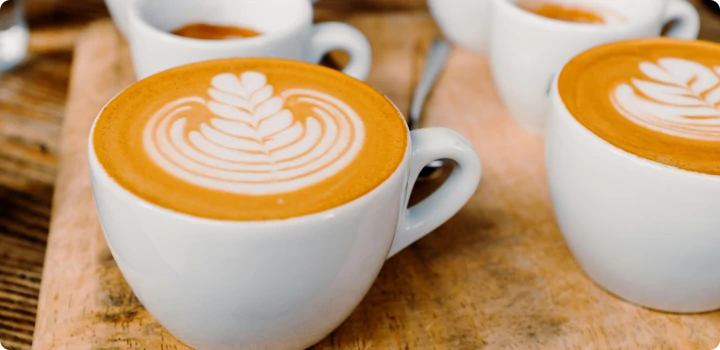
Beverage Serving Equipment
Coffee Cups and Saucers
The cups and saucers you choose for your coffee shop are not just functional; they also contribute to the overall customer experience. It’s crucial to select the right size and material for your cups, as this can affect the temperature and taste of the coffee.
Typically, ceramic cups are preferred because they retain heat well and do not impart any flavours to the coffee. The size of the cup should correspond to the type of drink being served; espresso cups are smaller, while cappuccino and latte cups are larger. Saucers add an extra touch of class and hygiene, providing a place for spoons and used sugar packets.
They also protect your tables from spills and stains.
When purchasing cups and saucers, consider their durability and how easily they can be replaced or added to as your coffee shop grows. Remember, the presentation of your drinks can make a lasting impression on your customers.
Coffee Urns and Servers
Coffee urns and servers are essential for serving large volumes of coffee while maintaining the desired temperature and flavour. Coffee urns are particularly useful during high-demand periods or for catering events, as they can hold a significant amount of coffee at a consistent heat.
These come in various sizes and can be equipped with multiple spigots to serve different coffee types simultaneously. Servers, on the other hand, are great for table service or smaller groups. They are typically insulated to keep coffee hot for extended periods without the need for an external heat source. When choosing urns and servers, consider the material, as stainless steel is durable and efficient at retaining heat.
Also, look for models with easy-to-use dispensing mechanisms and tight-fitting lids to prevent spills. Keeping these containers clean and well-maintained will ensure that the coffee’s flavour is preserved from the first cup to the last.
Beverage Dispensers
Beverage dispensers are a convenient solution for serving a variety of drinks beyond coffee, such as water, juice, or iced tea. They are particularly useful in self-service areas where customers can help themselves, reducing the workload on your staff.
When choosing beverage dispensers, it’s important to consider the ease of use, refill, and cleaning. Some come with features like ice cores to keep drinks cool without diluting them, or infuser tubes for adding fruits and herbs to water or teas. The material is also a consideration; clear plastic dispensers allow customers to see the contents, while stainless steel can offer a more elegant look and improved durability.
Capacity is another key factor, as larger dispensers will require fewer refills but may take up more space. Regular cleaning and maintenance will prevent the build-up of residue and ensure the freshness and flavour of your beverages.
Other Coffee Shop Considerations
Blenders and Mixers
Blenders and mixers are crucial for a coffee shop that offers a diverse menu, including blended iced coffees, smoothies, or shakes. The key to selecting the right blender or mixer is to look for a device that can handle frequent use and a variety of ingredients without losing efficiency.
High-performance blenders with powerful motors and durable blades can crush ice and blend frozen fruits smoothly, which is essential for a consistent texture and taste. Some models come with different speed settings and pre-programmed cycles for various drinks, simplifying the process for your staff.
Noise reduction features can also be beneficial, especially in smaller spaces where the sound of a blender could disrupt the ambiance. It’s important to choose equipment that’s easy to clean and maintain, as hygiene is paramount in food and beverage preparation.
A well-chosen blender or mixer can greatly expand your coffee shop’s menu and appeal to customers looking for more than just a traditional cup of coffee.
Other Essential Coffee Shop Accessories
In addition to the extensive coffee shop equipment list, a variety of other essential coffee accessories are necessary for the smooth operation of a coffee shop kitchen. These include high-quality knives for food prep, cutting boards, measuring spoons and scales for precise ingredient portioning, and a range of utensils for stirring, scooping, and serving.
Storage containers help keep ingredients fresh and organised, while baking sheets and pans are necessary for those offering pastries and baked goods. Timers are indispensable for ensuring that food and coffee are prepared perfectly every time. Don’t overlook the importance of safety equipment, such as oven mitts and aprons, to protect your staff.
Cleaning supplies, including sanitising agents and dishwashing equipment, are also critical to maintain a hygienic environment. Each of these tools may seem small on their own, but together they contribute significantly to the efficiency and quality of service in any coffee shop.
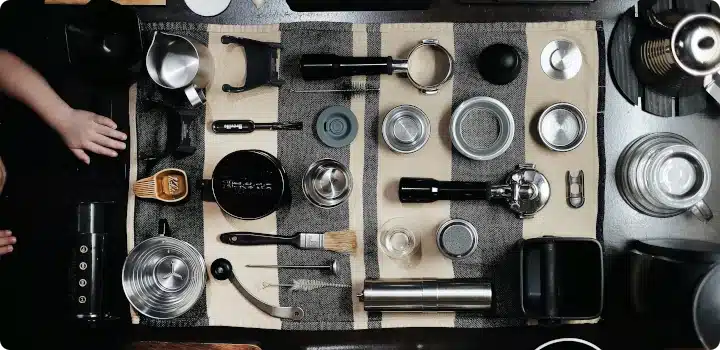
Equipment Maintenance for Coffee Shops
Regular Cleaning and Care
Regular cleaning and care of your coffee shop equipment are essential to maintain both the quality of your coffee and the longevity of your machines. Daily cleaning routines should include wiping down espresso machines, coffee brewers, and grinders to remove coffee oils and residue.
For espresso machines, back flushing with water and a cleaning agent is recommended to clear out any old coffee grounds and oils from the group head. Milk steam wands should be purged and wiped after each use to prevent milk build-up. Weekly deep cleans are also necessary to descale water boilers and to clean burrs in grinders for consistent grind quality.
Proper care extends to regular checks and replacement of worn parts such as gaskets and filters. Adhering to a rigorous maintenance schedule not only ensures that equipment performs at its best but also enhances the overall customer experience by delivering exceptional coffee consistently.
Scheduled Maintenance and Repairs
Scheduled maintenance and repairs are key components of the longevity and performance of coffee shop equipment. It’s crucial to follow the manufacturer’s guidelines for servicing and to establish a routine maintenance schedule.
This can include quarterly servicing of espresso machines to check pressure and temperature accuracy, as well as to replace any worn seals or gaskets. Grinders also require periodic servicing to ensure their blades or burrs are sharp for a consistent grind.
Preventative maintenance can help identify potential issues before they become costly breakdowns, helping you to save money and time in the long run.
It’s advisable to have a professional technician inspect and service your equipment, as they can provide expert care and advice. Keeping a log of maintenance and repairs can also be useful for tracking the performance of your equipment over time.
Proactive maintenance and timely repairs are investments in the efficiency and reliability of your coffee shop operations.
Replacing and Upgrading Equipment
Over time, most coffee shops will need to replace or upgrade equipment. It’s important to recognise when a piece of equipment is no longer performing optimally, as it can impact the quality of your products and the efficiency of your operation.
Upgrading to newer models can offer improved technology, energy efficiency, and better performance. When considering replacements, evaluate the usage patterns and demands of your current equipment to identify the features that will most benefit your business.
It’s also a good opportunity to consider the scalability of new equipment to accommodate future growth. Investing in higher-quality or more advanced equipment can enhance the customer experience, streamline workflow, and contribute to overall business success.
Always dispose of old equipment responsibly and consider the potential resale value or donation opportunities for machines that are still functional but no longer meet your needs.
Contact Us for Coffee Shop Advice
If you have any questions about starting up your coffee shop, look no further! At Iron & Fire, we’re here to provide expert advice on all things coffee-related.
Whether you need guidance on equipment selection, barista supplies, menu development, or best practices for beverage preparation, our knowledgeable team is ready to assist you every step of the way.
Don’t hesitate to reach out to us; we are dedicated to helping you turn your coffee shop dreams into reality. Let’s brew success together!

